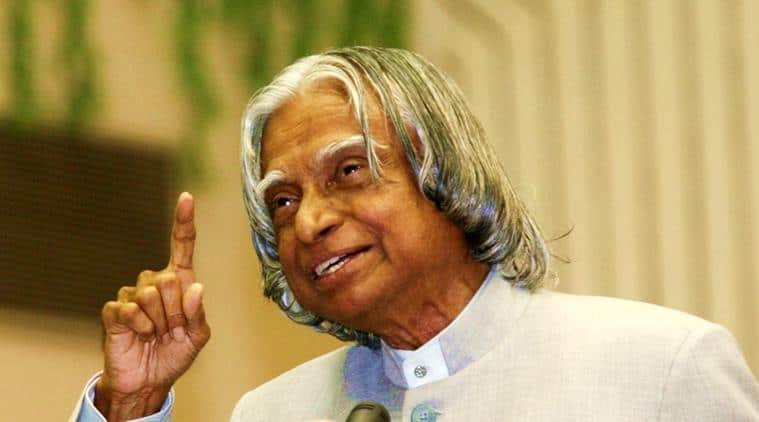‘Look at the sky. We are not alone. The whole universe is friendly to us and conspires only to give the best to those who dream and work.’ Dr. APJ Abdul Kalam was one of the most loved Presidents of India. Due to his love for students and focus on promoting education, the United Nations declared his birthday,15th October as ‘World Student’s Day’ in 2010.
Avul Pakir Jainulabdeen Abdul Kalam was a scientist who made India proud with his missile defence programme. His contributions to the Indian Space Research Organization are unforgettable. Numerous projects were headed by him such as the launch of the Rohini-1, Project Devil and Project Valiant, and, developing missiles.For his great contributions in improving the nuclear power of India, he is popularly known as the ‘Missile Man of India’. But his favourite job was teaching, and that is how he wanted the world to remember him.Due to his love towards education, students, and his efforts in promoting education, United Nations declared his birthday as ‘World Student’s Day’ in 2010.
According to him, the modern ideology of being a well-learned person is to sharpen the merit of a student. For any student, to rise from being average to an extraordinary one, only bookish knowledge was not sufficient, one should walk the paths of all branches, like theory, reading, understanding and its practical application. Dr.Kalam once said, “It is easier to build strong children than to repair broken adults”. Dr.Kalam believed that if children were moulded in their attitudes, values, ideas and, ideals, a better world with a hope for tomorrow could be achieved. The best method of education was by imparting behavior patterns. Teachers and parents should behave in such a way as to instill values in children. Enlightened behavior of parents fosters a spiritual and moral atmosphere at home. According to Dr. Abdul Kalam, knowledge has many forms. Knowledge is acquired through education, information and experience. Ironically, all through school, we were taught to read, write, and speak but never to listen and even today, the situation is the similar. Dr. Abdul Kalam considered the children of India the future of the country and always showed his deep concern over the increasing atrocities being perpetrated against them.
His sudden demise on July 27, 2015 shocked the nation. Dr.Kalam passed away doing what he loved best i.e. teaching. Delivering a lecture to the students of Indian Institute of Management Shillong, Dr. APJ Abdul Kalam fell down the stage suffering a stroke and passed away on the spot. The entire nation grieved his demise irrespective of caste, creed, location or religion.
Feature Image Credits: NDTV
Anoushka Sharma












